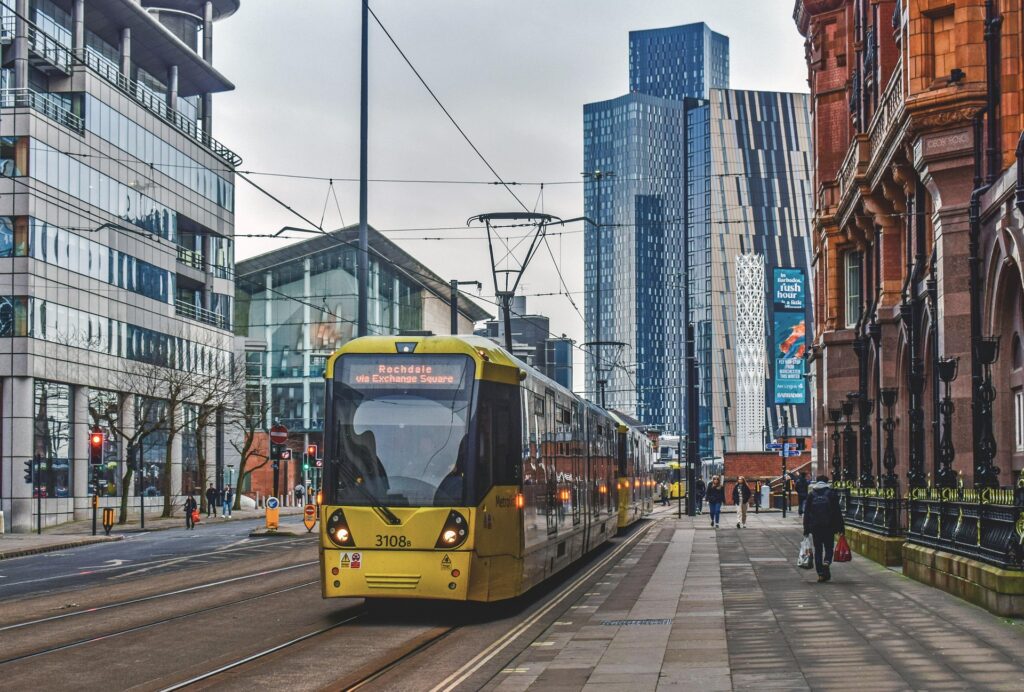Chancellor’s £15bn local transport boost is just the ticket for unlocking regional office development

The £15.6bn earmarked for local transport by Rachel Reeves last week is a welcome intervention that will have impacts beyond those set out in the Spending Review. It is not just about moving people; it is a strategic investment in our urban centres that has the potential to spur economic growth through regional office investment.
Improved connectivity inevitably enhances the long-term viability and attractiveness of office locations for both occupiers and investors. By making city centres more accessible and appealing, it creates the conditions for businesses to thrive, increasing the demand for high-quality office spaces and ultimately contributing to the “place-based growth” goals of the government’s Growth Mission Fund.
Primarily targeted at England’s city regions across Yorkshire, the North West, Midlands and the South West, the announced funding will complement and incentivise the private sector-driven placemaking that underpins the most ambitious office schemes in our regional cities.
Regional impact
In Greater Manchester, £2.5bn has been allocated for growing the Metrolink tram network, with new tram stops in Bury, Manchester and Oldham, plus a Metrolink extension to Stockport. Some 1,000 new electric buses are also planned.
Expanding the Metrolink network will directly benefit the growing prime office cluster at St Peter’s Square in the city’s Civic Quarter and the nearby Spinningfields, expanding the catchment for viable commuting and improving the service for those already using the network.
The increased funding for city region transport and the long-awaited TransPennine Route upgrade, will play a pivotal role in stimulating the office market across the North as a whole. Faster, more affordable, and predictable commuter routes will support greater attendance in offices, improving productivity and collaboration in the long term.
“Proposed investment in mass transit networks is not just about mobility – it’s about economic parity,” says BCO Northern Committee chair Alex Stork. “For example, current headline office rents in Bradford sit at £22 per sq ft compared with £41 and £45 in Leeds and Manchester respectively. If regional hubs like Bradford are better connected, we will see a more balanced and thriving office landscape in those underinvested areas as a result.”
In the Midlands, some £2.4bn will be invested into the West Midlands Metro, a project that is set to enhance regional connectivity, unlock development potential and support wider economic growth.
The Spending Review also confirmed funding for the next stage of the planning and development for the Midlands Rail Hub. It is expected to dramatically increase rail capacity into Birmingham and provide a step-change in connectivity across the wider region, driving economic growth and thousands of new homes and jobs.
“Strategic investments in infrastructure, sustainability and skills development are set to drive long-term growth, while short-term economic factors may influence the trajectory of the office market,” says chair of the BCO Midlands committee Robert van Zyl. “We hope that this level of public commitment helps restore confidence across the city and local office community.”
More than mobility
However, infrastructure alone cannot deliver growth. While there is plenty of evidence that shows that when the commute is timely, clunky and expensive, workers stay home, how an office enables a valuable work experience matters in equal measure.
The British Council for Offices Guide to Specification now puts location, showers and bike stores, and energy performance on a par with floor‑plate efficiency. That means that offices beyond the ticket barrier therefore have to repay the effort of the commute, providing energy‑efficient workplaces with real amenities that recreate the social buzz that remote work lacks.
If investment in transport makes it easier to attend the office, a key challenge for occupiers will be maintaining a consistent and inclusive experience across multiple work settings. While working patterns have evolved from a single place of work to multiple “places” of work in the new hybrid model, not all employees have access to high-quality home setups or suitable third spaces. The proposed regional transport improvements, especially in smaller towns and rural areas, should enable more equitable access to the best quality work environments.
The role of the BCO
So, what role can we at the BCO have to help insure our regions make the most of this proposed increased investment in infrastructure?
Unlocking the Growth Mission Fund cash will flow only where promoters show a clear link between quicker, greener journeys and productive, people‑centred buildings.
Together we can help highlight the importance of commercial workspace in the revival of our towns and cities and can connect with our regional city leaders to help them link offices to transport in every bid for funding they make.
By connecting people to jobs and businesses to talent, efficient transport systems amplify the impact of other investments made through the Growth Mission Fund and Local Plans.
It was once said that “if you build it, they will come”, but it is equally true that “if they come, we will build it”. The investment case is clear, let’s use this opportunity to maintain the momentum of regeneration across our regional cities.
“Concrete and coworking pods will not revive our cities on their own,” says chair of the BCO Scotland committee Peter Kerr. “People will return when the journey is swift and the destination inspiring. This £15bn is the opening bid; turning it into footfall and growth falls to transport chiefs, developers and employers alike.”







